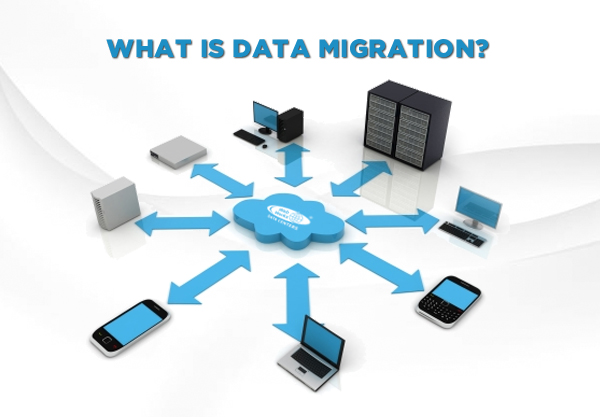Tremendous amounts of data is generated every single day, according to a report by Forbes, there is a staggering 2.5 Quintilian bytes of data generated every single day. Also, in the same report the writer also mentions that more than 3.7 billion humans use the internet today. Around 40 thousand searches happen on google every single day. In simple words, the amount of data generated across the globe is unfathomable and it is only going to grow in the coming years. But that only makes us question how companies continuously upgrade their hardware to suit the ever increasing data demands without losing their data?
What is data migration?
Data migration is a process in which the data of organizations is moved from one location to another. This process generally takes place when the business upgrades their equipment or changes their location. Businesses as mentioned earlier generate a lot of data and all of that is mission critical. Any loss of data for online businesses means disruption in the continuity of the business and financial loss. The data migration service is a handy tool when it comes to upgrading equipment for organizations. Data center providers offer data migration services for organizations that help them move data from one server to another without any hesitation.
There are a number of data migration services that data centers generally offer:
- Server Migration: A server migration procedure is the one in which data is transferred from one server to another. One of main reasons for a server migration is the upgradation of equipment as the brand continues to grow and so does their consumer demand.
- Email migration: E mail migration is the process in which a huge number of emails are transferred from one email client to another client. Another term for email migration is Mailbox migration, in email migration details like contacts appointments and tasks might be transferred.
- Database migration: The process allows for easy transfer of data from different systems to databases. During the process the user’s source data base operates optimally while the critical information is being transferred to the said destination.
- Hybrid Migration: In a hybrid migration process that allows users to migrate on-premise mailboxes to on-site. The process allows one to transfer the existing mailbox between exchange servers and exchange online.
- Backup migration: A backup migration allows consumers to move all files, databases and email backups from an old backup hosting account to the new account with ease.

